Your pet is a beloved family member, and as a responsible pet owner, you try to provide them with a safe and comfortable environment. However, amidst your efforts to create a comfortable home, several seemingly harmless household items can pose serious dangers to your furry friend. You must stay aware of potential hazards—from common foods to everyday objects—to protect your pet. Our WesVet Animal Hospital team covers the surprising household items that could harm your furry companion.
Foods that are dangerous to pets
Certain foods that people eat are tempting to cats and dogs because they are tasty, but many of them are also toxic. While your hungry pet may delight in a nibble of your food, tastiness does not guarantee its safety. In addition, some foods can be dangerous, not because they’re toxic, but because they pose health risks such as choking. Rather than giving your pet potentially harmful food, feed them a pet treat or offer plenty of affection as a reward. Be aware of the following unsafe foods for pets:
- Xylitol, a sugar substitute used in some candy, gum, and peanut butter
- Chocolate
- Grapes and raisins
- Onions and garlic
- Alcohol
- Macadamia nuts
- Avocados
- Caffeine
- Raw dough
- Bones
- Foil and plastic wrappers
- Greasy or fatty foods
Flowers and plants that can poison pets
Many of us add greenery and flowers to our homes to beautify the environment. However, some popular plants are unsafe for your four-legged friend. The following is a list of some of the more poisonous varieties:
- Lilies, which are highly toxic to cats
- Sago palm
- Yew
- Poinsettia
- Autumn crocus
- Kalanchoe
- Azalea
- Oleander
- Cyclamen
- English ivy
- Daffodil, tulip, and narcissus bulbs
- Philodendron
Before bringing home a new plant, review the American Society for the Prevention of Cruelty to Animals (ASPCA) Toxic and Non-Toxic Plants list, which provides comprehensive information You can also consider bringing home silk flower arrangements rather than risking your pet’s health.
Small toys and objects that endanger pets
Many pets are tempted to chew or swallow items they find around the house. Our WesVet Animal Hospital team treats a lot of accidental small object ingestion cases. Small objects are not only choking hazards but can also cause internal injuries or obstructions. Keep the following items away from your four-legged friend:
- Batteries
- Children’s toys
- Coins
- Paper clips
- Strings such as dental floss, yarn, and ribbon
- Plastic bags
- Electrical cords and wires
- Pushpins
- Keys
- Buttons
- Rubber bands
- Hair ties
Medication mishaps and pets
Over-the-counter (OTC) medications for people are one of the top causes of pet poisoning every year. If a pet ingests acetaminophen, ibuprofen, a cold and flu medication, or an antidepressant, they can develop a range of health conditions, including vomiting, diarrhea, seizures, and organ damage. Never give your pet human medications unless under the guidance of your veterinarian. Ensure all medications are appropriately stored in a medicine cabinet and never left on a bedside or other low table.
Garage dangers to pets
Antifreeze contains ethylene glycol, a highly toxic substance that can be lethal to a pet who laps up a minuscule amount. This chemical’s sweet flavor appeals to most pets, but ingestion can lead to rapid kidney failure and death. The garage also contains other harmful chemicals, including:
- Battery acid
- Paint and paint thinner
- Wood varnish
- Pesticides
- Automotive fluids
- Rat and mouse baits
- Fertilizers
- Mulches
- Household cleaners
Keep your pet out of your garage, and store chemicals in a secure cabinet. Put your pet in another room whenever you use chemicals or cleaners, and only allow them in when the cleaners have dissipated or the chemicals are put away.
Trash cans pose health risks for pets
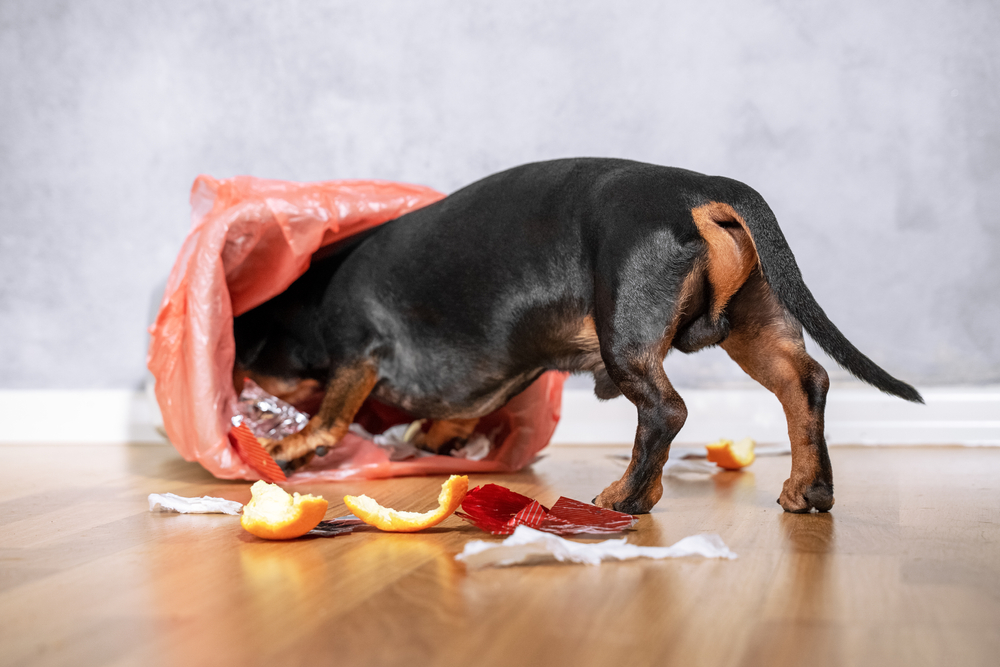
Open garbage cans are a pet-danger cornucopia. Pets always want to investigate discarded foods in trash cans. Along with potentially toxic food, trash often consists of other pet dangers, such as sharp objects, discarded bottles, small items, medications, and bones. Cover all trash cans with a lid that can be latched shut, or place the bin inside a cabinet, away from your pet’s prying nose.
We fill our homes with items that enhance our lives, but you need to recognize the many products that pose serious health risks to your furry pal. By staying informed about potential hazards and taking proactive measures to pet-proof your home, you can help ensure your furry companion’s safety and well-being. If your pet has ingested something they shouldn’t, seek prompt veterinary care by calling our WesVet Animal Hospital or consulting the Pet Poison Helpline to prevent your four-legged friend from developing severe complications.

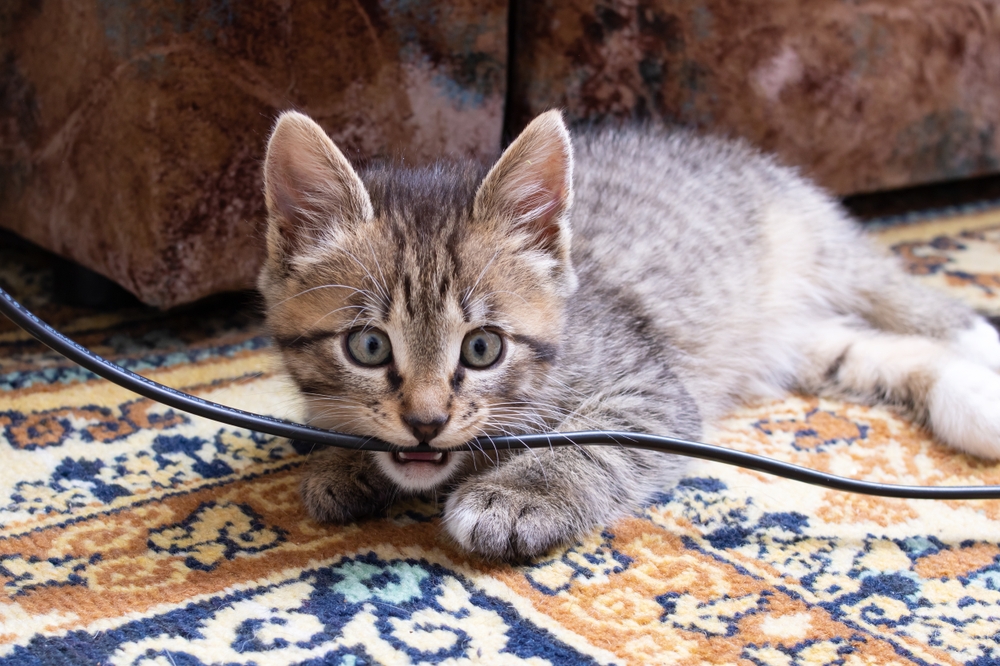
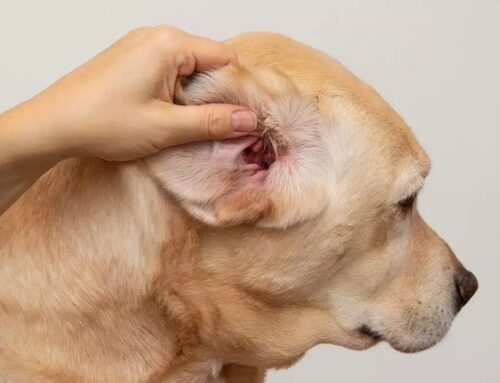
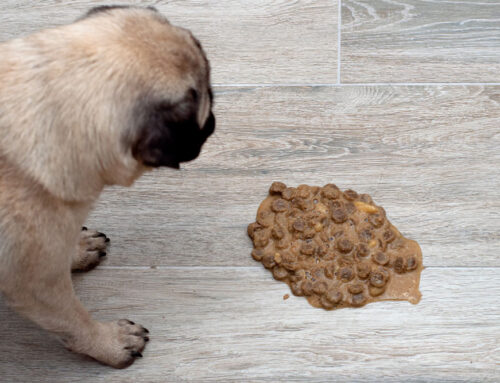
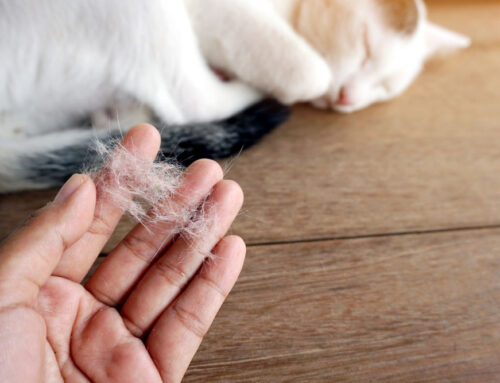

Leave A Comment